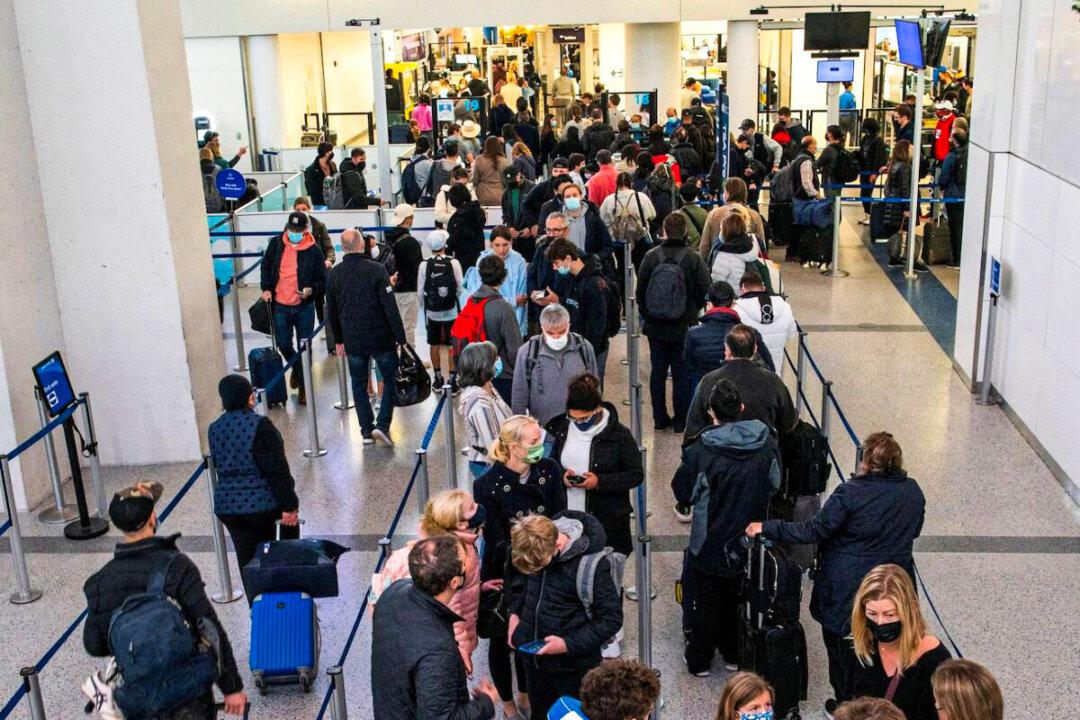Air travelers entering the United States are set to face tougher testing requirements following the discovery of the Omicron variant of the CCP virus, which causes COVID-19, a Centers for Disease Control and Prevention (CDC) spokeswoman confirmed on Nov. 30.
U.S. citizens and foreign nationals arriving in the United States will soon be required to present a negative COVID-19 test performed within 24 hours of departure, a change from the current three days allowed for vaccinated travelers. A CDC spokeswoman confirmed to Reuters that the agency is working to modify its global testing rules for travelers.




